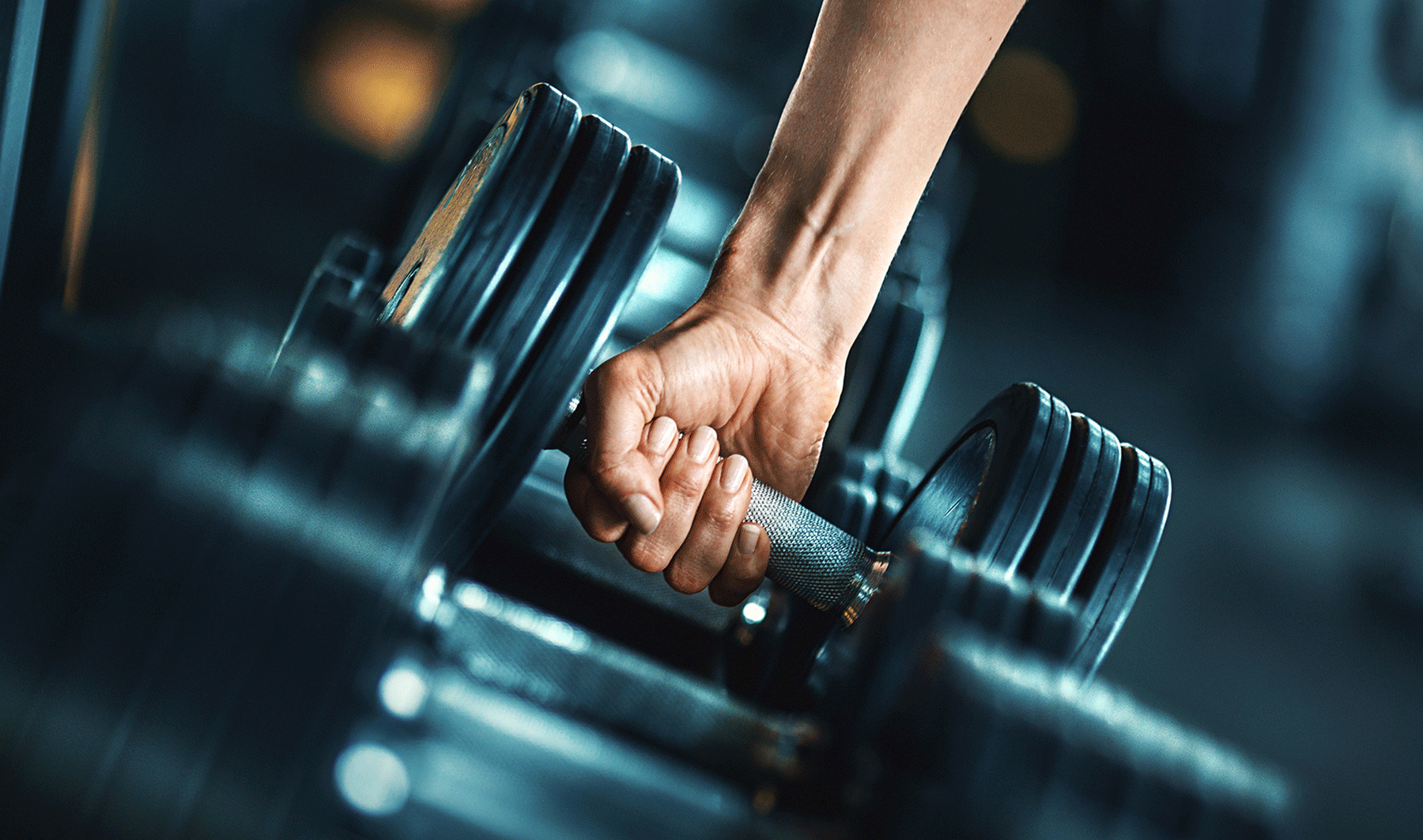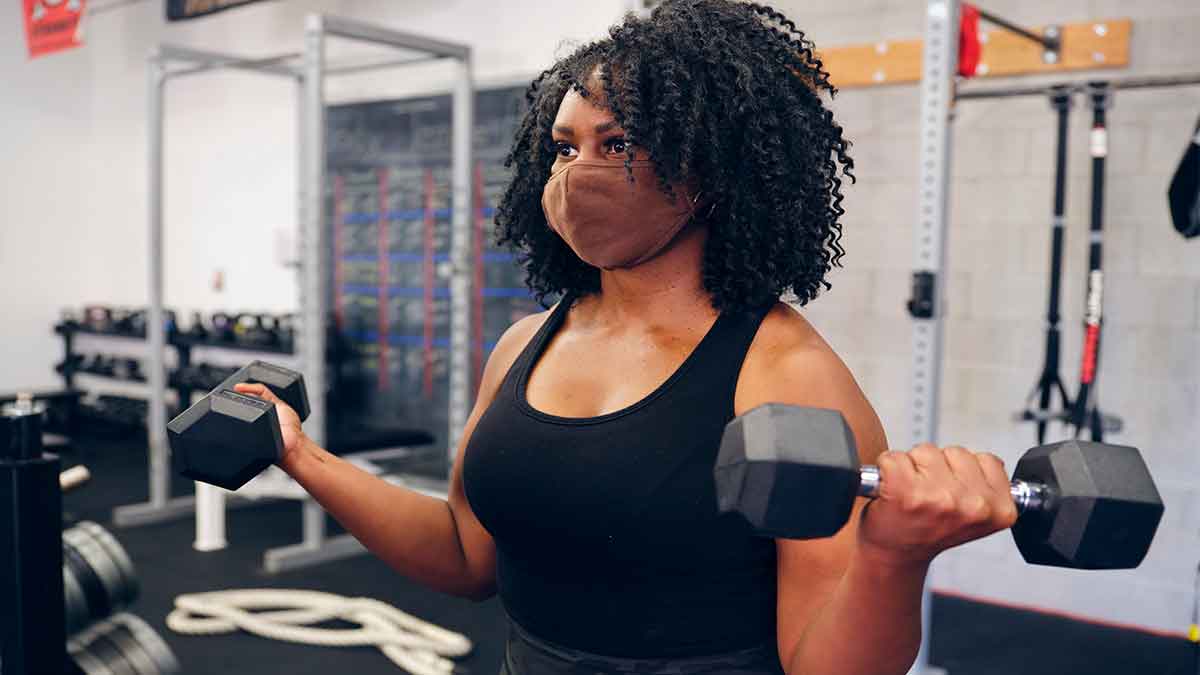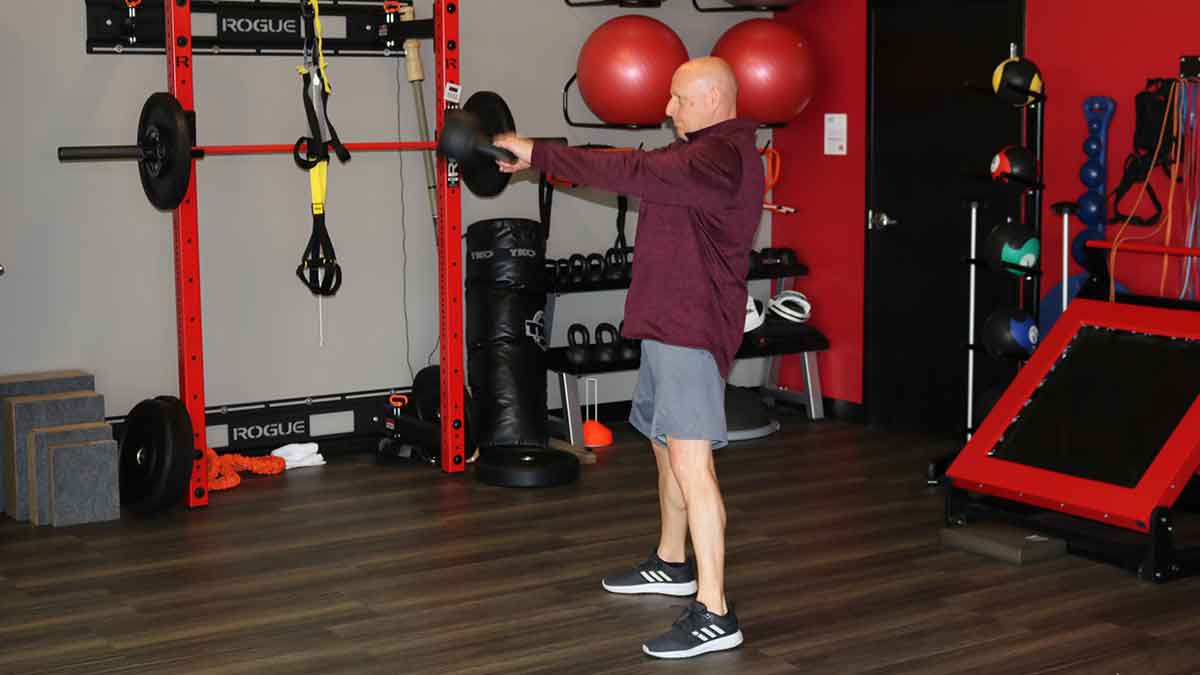Five things preventing you from building muscle

Are you trying to build muscle but not seeing any results? You could be sabotaging your efforts with poor planning or lack of knowledge. What my training as a physical therapist and athletic trainer has taught me is that building muscle is about discipline and accountability. There may be many reasons you’re not gaining the muscle you want. Here are five:
Doing too much cardio
This a topic of much debate. The American Heart Association recommends 40 minutes of aerobic (cardio) activity with moderate to vigorous intensity to lower your blood pressure or cholesterol, and your risk for both heart attacks and strokes. If you don’t have high blood pressure or high cholesterol, the AHA recommends 30 minutes of moderate or vigorous activity five times per week. These guidelines are the standard. But if you’re trying to build lean muscle, strength training should be your main focus, with some cardio on the back end. Low-impact cardio typically burns more calories than strength training and, if you’re doing a lot of cardio, you’ll need to refuel your body appropriately to continue to build muscle
Overtraining, not enough rest
Overtraining is often misunderstood; it’s not inclusive to workouts alone. Overtraining can consist of other physiological, emotional, environmental and chemical stressors. Over exercising is only a piece of the puzzle that leads to overtraining. All of these stressors can cause fatigue and over stimulate your central nervous system, leading to decreased recovery and a negative hormonal response. When we’re stressed, our bodies release the hormone cortisol. Too much cortisol in the body can lead to systemic inflammation and even depleted testosterone. My advice is to get adequate rest and sleep, at least 6-8 hours a night, and don’t work out vigorously for more than five days a week. It’s also important to remember that other stresses in your life can have a negative effect on your body when trying to build muscle.
Using too much weight and bad form
If you want to build muscle, you need to use a weight that is heavy enough to stimulate growth. A common misconception among women is that you’ll get “bulky” from lifting heavy weights. Women should forget this notion because it’s untrue. To build muscle, you need to use a heavier weight than your body is accustomed to in order to increase strength and stimulate growth. However, it’s important that you master a move with a lighter weight, then progress to a heavier weight when you’re ready. If you’re using bad form, momentum to lift the weight or feeling any pain beyond typical muscle soreness, the weight is too heavy and you risk getting hurt. Keep in mind that a physical therapist or experienced personal trainer can be a valuable resource to ensure proper form and technique, so don’t be afraid to seek help.
Not eating right or enough
A registered dietitian will be able to give you the best advice on dietary specifics, but a general rule is that you have to consume enough calories in your diet to create a state of anabolic growth. If you’re burning more calories than you’re taking in, you’ll create a state of catabolism (breaking down of molecules) instead and defeat the purpose of strength training.
For example, if you consume 1,600 calories a day but burn more than 2,000 calories, you won’t gain muscle. The Institute of Medicine recommends these daily ranges for essential nutrients:
- Carbohydrates: 45-65 percent
- Proteins: 10-35 percent
- Fats: 20-35 percent (limiting saturated and trans fats)
I often see athletes and others who’re trying to build muscle exceed the amount of protein their bodies actually need and don’t eat enough carbohydrates.
The recommended protein intake for someone trying to build muscle is between 1.4 and 1.8 grams per pound of body weight per day (multiply your weight in pounds by the appropriate number in this range). If you’re engaging in 1 to 3 hours of moderate/high intensity exercise, the recommended amount of carbohydrates is 7 to 10 grams per pound of body weight per day.
Note that it’s better to get nutrients from real meals instead of relying on supplements. Our bodies are made to digest organic materials (lean meats, greens, etc.). Make sure you’re sticking to the recommended dietary guidelines. You need to consume more calories than you burn through healthy meals to build healthy, lean muscle. To get a breakdown of your specific dietary needs, I suggest making an appointment with a registered dietitian.
Lack of accountability and poor planning
The final and probably biggest thing that’s preventing you from seeing results is lack of planning. If you want success, you need to plan your meals and workouts ahead of time. It’s really hard to build a house without a blueprint and the right materials. The same thing goes for your body. Plan your meals and your workouts for one to two weeks at a time to make sure you’re getting adequate nutrition, that your workouts are enough to stimulate growth and you’re allowing for rest. Recording your workouts and nutrition is key.
Lastly, find workouts that you enjoy. I personally enjoy a blend of powerlifting and strength training assistance work. Find something you like that’s consistent with your training goals. Being “motivated” to go to the gym isn’t enough because it thrives on your emotions and the ups and downs in your life. Instead, focus on a plan, be disciplined with consistent workouts, eat a healthy diet and get after it.
Jake Depp is a physical therapist and athletic trainer at The Ohio State University Wexner Medical Center's Outpatient Care.




